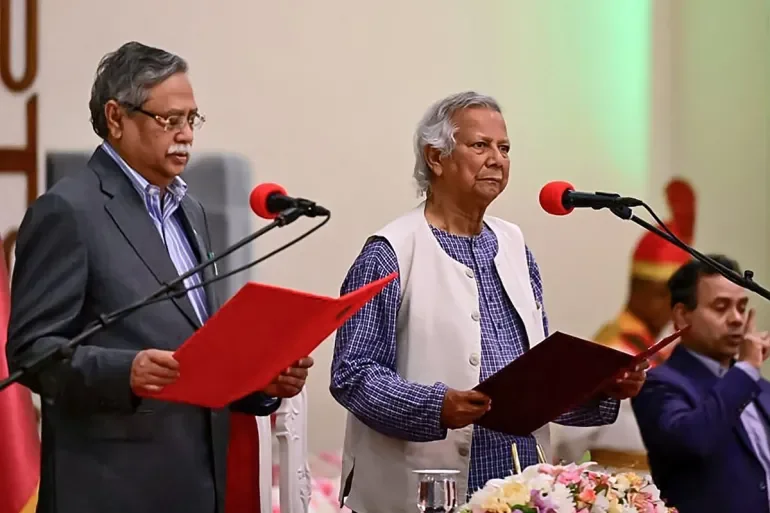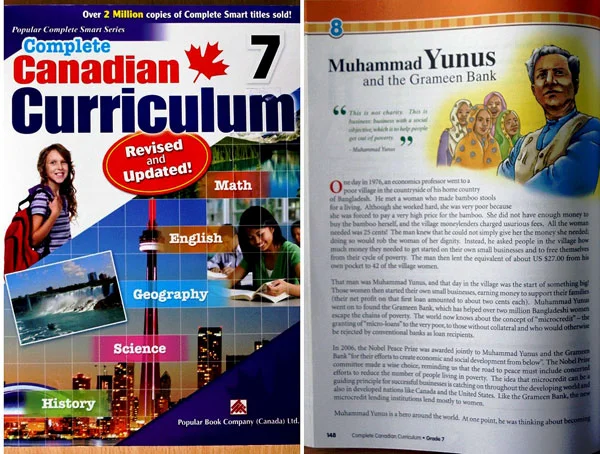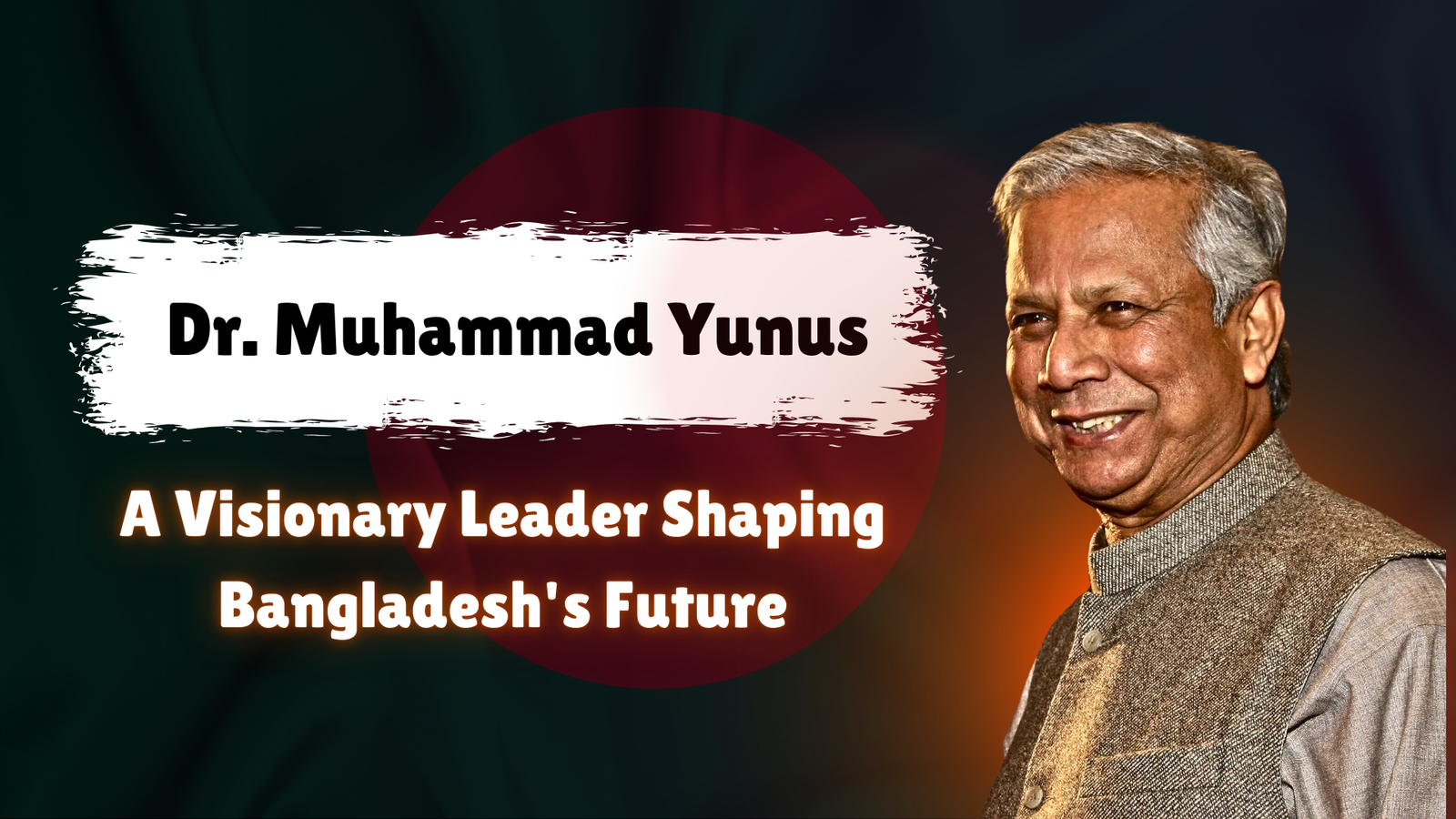Introduction
Dr. Muhammad Yunus, a name synonymous with innovation in the realm of social entrepreneurship and microfinance, has had an indelible impact on global efforts to alleviate poverty and promote economic inclusion. His groundbreaking work with Grameen Bank and his advocacy for social business have made him a global icon, earning him the Nobel Peace Prize in 2006. In 2024, Dr. Yunus added another feather to his cap by assuming the role of Chief Adviser to the Government of Bangladesh. This blog delves into the various stages of his life, his contributions, and his current role as a national leader.
Table of Contents
Early Life and Education
Dr. Yunus was born on June 28, 1940, in the village of Bathua in Chittagong, Bangladesh. Growing up in a large family with a strong emphasis on education, Yunus showed early promise as a student. His academic journey laid the foundation for his later achievements, as he excelled in various fields of study, eventually earning accolades both nationally and internationally.
| Stage | Education |
|---|---|
| Early Education | Enrolled in Lamabazar Primary School, Chittagong. |
| Secondary Education | Attended Chittagong Collegiate School, where he excelled in academics. |
| Undergraduate | B.A. in Economics from the University of Dhaka, Bangladesh. |
| Postgraduate | M.A. in Economics from the University of Dhaka, Bangladesh. |
| Doctorate | Ph.D. in Economics from Vanderbilt University, USA, under the Fulbright Program. |
Yunus’s education was instrumental in shaping his worldview, particularly his focus on economics and social issues. His time in the United States allowed him to gain valuable insights into global economic systems, which he later applied to his work in Bangladesh.
Academic Career and Early Professional Life
After completing his Ph.D., Dr. Yunus returned to Bangladesh and began his academic career as a professor of economics at Chittagong University. It was during this period that he started exploring the challenges faced by the rural poor in Bangladesh, particularly their lack of access to credit.
Yunus’s innovative approach led him to experiment with small loans to the poor, which eventually evolved into the concept of microcredit. In 1976, he founded Grameen Bank, a pioneering microfinance institution that provided small, collateral-free loans to the poor, particularly women, enabling them to start small businesses and improve their livelihoods.
Pioneering the Microfinance Movement
Grameen Bank’s success was nothing short of revolutionary. By focusing on the needs of the poorest segments of society, Yunus demonstrated that the poor are creditworthy and that microfinance could be a powerful tool for poverty alleviation. The bank’s model was replicated in numerous countries, inspiring the creation of similar institutions worldwide.
Yunus’s work earned him numerous awards and honors, including the Nobel Peace Prize in 2006. The Nobel Committee recognized his efforts to create economic and social development from below, empowering the poor to lift themselves out of poverty.
Challenges and Controversies
Despite his successes, Dr. Yunus has faced challenges and controversies throughout his career. One of the most notable was his removal from Grameen Bank in 2011, following a legal dispute with the Bangladeshi government. The controversy began when the government accused Yunus of exceeding the retirement age for managing directors and questioned the governance and management practices of Grameen Bank.
The legal battle sparked international outrage, with many prominent figures expressing support for Yunus. Despite the controversy, Yunus continued to advocate for the expansion of microfinance and social business, refusing to let the setback deter him from his mission.
Chief Adviser of Bangladesh: A New Chapter in Leadership
In 2024, Dr. Yunus assumed the role of Chief Adviser to the Government of Bangladesh, marking a significant milestone in his career. This position allows him to directly influence national policy, particularly in areas close to his heart, such as poverty alleviation, education reform, healthcare, and sustainable development. His appointment came after the resignation of former Prime Minister Sheikh Hasina, when students across the nation strongly advocated for Dr. Yunus to lead the interim government as Chief Adviser. Notably, he was entrusted with overseeing the responsibilities of 27 ministries, highlighting the breadth of his influence in shaping the nation’s future. On the day of his oath-taking, Dr. Yunus was sworn in by the President of Bangladesh in a solemn ceremony held at the Bangabhaban. The event was attended by high-ranking officials and dignitaries, reflecting the importance of his new role in the country’s governance.

Key Areas of Focus as Chief Adviser
- Poverty Alleviation and Economic Inclusion: Dr. Yunus has continued his advocacy for expanding microfinance and social business initiatives. He is pushing for policies that promote economic inclusion, such as access to credit for small and medium-sized enterprises (SMEs) and support for women’s entrepreneurship.
- Education Reform: Yunus recognizes the critical role of education in breaking the cycle of poverty. He is advocating for greater investment in education, particularly in improving the quality of primary and secondary education, and promoting digital literacy.
- Healthcare and Public Health: In his role as Chief Adviser, Yunus is championing efforts to expand healthcare infrastructure, increase access to essential medicines, and promote preventive care, especially in rural areas.
- Sustainable Development and Climate Change: Yunus is a strong advocate for sustainable development, calling for greater investment in renewable energy, climate-resilient infrastructure, and sustainable agriculture.
- Social Justice and Governance: Dr. Yunus emphasizes the importance of transparency, accountability, and the rule of law in government institutions. He also advocates for the protection of human rights and the empowerment of marginalized communities.
Challenges and Opportunities
Dr. Yunus’s role as Chief Adviser comes with significant challenges, particularly in navigating the complex political landscape of Bangladesh. Implementing his ambitious reforms will require strong political will, effective coordination, and the mobilization of resources. However, his global reputation and innovative approaches present unique opportunities to attract international attention and investment.
Legacy and Impact
Dr. Muhammad Yunus’s journey from a small village in Chittagong to becoming a Nobel laureate and Chief Adviser of Bangladesh is a testament to his vision, perseverance, and compassion. His pioneering work in microfinance has transformed the lives of millions, providing a path out of poverty for those left behind by traditional economic systems. As Chief Adviser, he has the opportunity to shape policies that will determine the future of Bangladesh, focusing on poverty alleviation, education reform, healthcare, and sustainable development.
Notable Quotes by Dr. Muhammad Yunus
Dr. Muhammad Yunus’s words have inspired millions around the world, encapsulating his vision for a more inclusive and just society. Here are some of his most notable quotes:
- “Poverty is not created by the poor. It is created by the systems we have built.”
- This quote reflects Yunus’s belief that poverty is a systemic issue, not a result of individual failings, and emphasizes the need for structural change.
- “I believe that we can create a poverty-free world because poverty is not in the person, it is in the system.”
- Yunus consistently advocated for a world where poverty could be eradicated by altering the economic systems that perpetuate it.
- “When you are obsessed with solving a problem, you will most likely solve it.”
- This quote illustrates Yunus’s relentless focus on finding solutions to societal issues, particularly poverty.
- “Social business is a business where we don’t want to make money; it’s a business to solve problems.”
- Yunus’s concept of social business underscores his innovative approach to entrepreneurship, where the primary goal is social impact rather than profit.
- “The poor themselves can create a poverty-free world. All we have to do is to free them from the chains that we have put around them.”
- This statement reinforces his belief in the power of the poor to lift themselves out of poverty, given the right opportunities and support.
Dr. Muhammad Yunus in Textbooks
- Dr. Muhammad Yunus’s life and achievements have been included in various textbooks across the world, allowing students to learn about social responsibility, economic inclusion, and the power of innovative thinking through his example.
- Some of the textbooks where Dr. Yunus’s biography is taught include:
- Canadian High School Textbooks: Dr. Yunus is included in the curriculum of Canadian high school students, as detailed in the official Muhammad Yunus Foundation website. This textbook introduces students to his innovative work with Grameen Bank and his contributions to social business.
- “Global Citizens: Social Justice and Human Rights” – United States: In this textbook, students explore Dr. Yunus’s contributions to social justice and economic empowerment, particularly his role in creating sustainable social businesses.
- “Business Studies for High School” – United Kingdom: This textbook covers Dr. Yunus’s approach to social business and the principles behind Grameen Bank, providing students with insights into ethical entrepreneurship.
- These examples show how Dr. Yunus’s life and work are used to educate students about important global issues and inspire the next generation of leaders.

image source: Yunus featured in Canadian High School Text Book (muhammadyunus.org)
Conclusion
Dr. Muhammad Yunus’s life and career are a powerful reminder of the impact that one individual can have on the world. From founding Grameen Bank and pioneering the microfinance movement to advocating for social business and serving as Chief Adviser of Bangladesh, Yunus has consistently demonstrated a deep commitment to improving the lives of the underprivileged. His innovative ideas and unwavering dedication to social justice have made him a global icon and a source of inspiration for countless others.
As he continues to serve in his new role as Chief Adviser, Dr. Yunus’s vision and leadership will be crucial in guiding Bangladesh toward a future of sustainable development, economic inclusion, and social justice. His legacy will be defined not only by the institutions he has built but also by the lives he has touched and the hope he has inspired in the pursuit of a better world.


